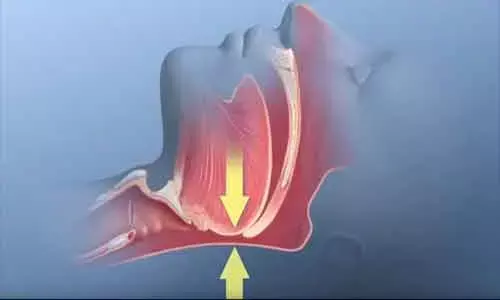- Home
- Medical news & Guidelines
- Anesthesiology
- Cardiology and CTVS
- Critical Care
- Dentistry
- Dermatology
- Diabetes and Endocrinology
- ENT
- Gastroenterology
- Medicine
- Nephrology
- Neurology
- Obstretics-Gynaecology
- Oncology
- Ophthalmology
- Orthopaedics
- Pediatrics-Neonatology
- Psychiatry
- Pulmonology
- Radiology
- Surgery
- Urology
- Laboratory Medicine
- Diet
- Nursing
- Paramedical
- Physiotherapy
- Health news
- Fact Check
- Bone Health Fact Check
- Brain Health Fact Check
- Cancer Related Fact Check
- Child Care Fact Check
- Dental and oral health fact check
- Diabetes and metabolic health fact check
- Diet and Nutrition Fact Check
- Eye and ENT Care Fact Check
- Fitness fact check
- Gut health fact check
- Heart health fact check
- Kidney health fact check
- Medical education fact check
- Men's health fact check
- Respiratory fact check
- Skin and hair care fact check
- Vaccine and Immunization fact check
- Women's health fact check
- AYUSH
- State News
- Andaman and Nicobar Islands
- Andhra Pradesh
- Arunachal Pradesh
- Assam
- Bihar
- Chandigarh
- Chattisgarh
- Dadra and Nagar Haveli
- Daman and Diu
- Delhi
- Goa
- Gujarat
- Haryana
- Himachal Pradesh
- Jammu & Kashmir
- Jharkhand
- Karnataka
- Kerala
- Ladakh
- Lakshadweep
- Madhya Pradesh
- Maharashtra
- Manipur
- Meghalaya
- Mizoram
- Nagaland
- Odisha
- Puducherry
- Punjab
- Rajasthan
- Sikkim
- Tamil Nadu
- Telangana
- Tripura
- Uttar Pradesh
- Uttrakhand
- West Bengal
- Medical Education
- Industry
CPAP reduces BP and cortisol levels in patients with sleep apnea: Study

UK: CPAP treatment in obstructive sleep apnea (OSA) patients is associated with lower blood pressure and cortisol levels, show results from a meta-analysis of 637 individuals. The study results appear in the journal Clinical Endocrinology.
Hypertension, OSA, and obesity frequently coexist and are associated with increased levels of cortisol. When investigating suspected Cushing's syndrome and hypertension, identification, and treatment of such patients become important. Studies on the impact of continuous positive airway pressure (CPAP) on cortisol and blood pressure have been conducted but are limited by a small sample size and have yielded conflicting results.
Against the above background, Thang S. Han, University of London, Surrey, UK, and colleagues aimed to document changes in the levels of cortisol and blood pressure in response to CPAP treatment of OSA.
For this purpose, the researchers conducted a meta-analysis using RevMan (v5.3) and expressed in standardized mean difference (SMD) for catecholamines and mean difference for systolic (SBP) and diastolic blood pressure (DBP). The quality of the studies was evaluated using standard tools for assessing the risk of bias.
A total of 22 studies consisting of 16 prospective cohort studies (that recruited 385 participants) and six randomized control trials (totaling 252 participants) met the search criteria. The range of mean age was 41–62 years and BMI 27.2–35.1 kg/m2.
The research yielded the following findings:
- CPAP treatment reduced plasma cortisol levels in PCS: SMD = −0.28 and in RCT: SMD = −0.39.
- CPAP treatment reduced SBP by 5.4 mmHg and DBP by 3.3 mmHg.
- Interstudy heterogeneity was low for all studies. Bias in most RCT arose from the lack of blinding of participants and personnel.
Our findings show that CPAP treatment in individuals with OSA reduces cortisol levels and blood pressure, concluded the authors.
Reference:
The study titled, "Changes in cortisol levels by continuous positive airway pressure in patients with obstructive sleep apnoea: Meta-analysis of 637 individuals," is published in the journal Clinical Endocrinology.
DOI: https://onlinelibrary.wiley.com/doi/full/10.1111/cen.14573
Dr Kamal Kant Kohli-MBBS, DTCD- a chest specialist with more than 30 years of practice and a flair for writing clinical articles, Dr Kamal Kant Kohli joined Medical Dialogues as a Chief Editor of Medical News. Besides writing articles, as an editor, he proofreads and verifies all the medical content published on Medical Dialogues including those coming from journals, studies,medical conferences,guidelines etc. Email: drkohli@medicaldialogues.in. Contact no. 011-43720751


